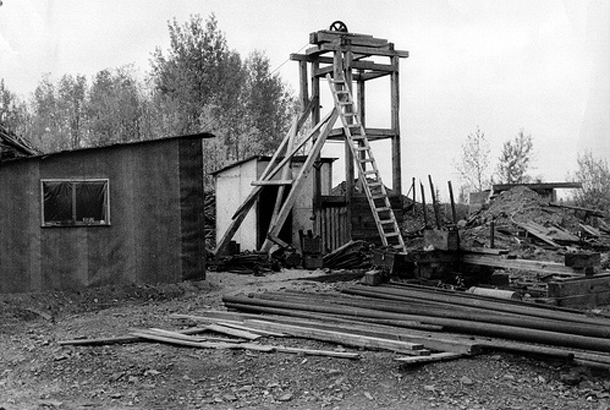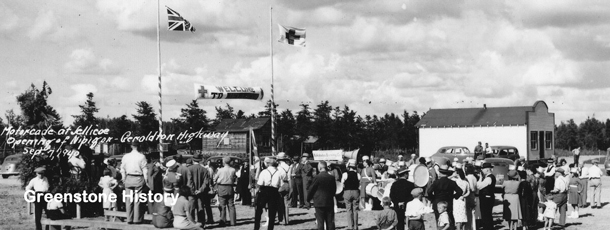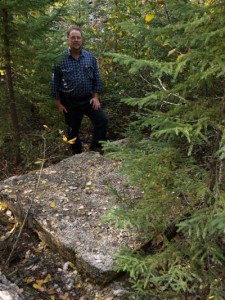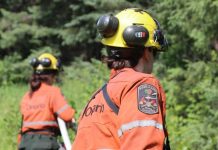

GREENSTONE – Two weeks ago, a new Facebook group was launched to promote and disseminate the history of Greenstone region. It has since become a regional phenomenon.
The social network Facebook has become a gathering place for people interested in the memories and histories of their communities. Most groups focus on a single town or community. Greenstone History stands out because it focuses on an entire region.

Friends of Greenstone History are discovering the depth and breadth of regional history. Many are, for the first time, learning about the ghost communities of Tashota and Kinghorn and Empire. They are learning about long-forgotten mines such as Tashota-Nipigon (gold) and Oremond (gold) and Nama Creek (lithium).

For the first time, group members are seeing historic photos of Highway 11 construction at the Pijitawabik Palisades, the 100-year-old railway tunnel at Macdiarmid, and the still-standing fire ranger tower at Taffy Lake.
The Municipality of Greenstone comprises the larger communities of Beardmore, Nakina, Geraldton, and Nakina, and the smaller urban congregations of Jellicoe and Caramat. The Greenstone History site embraces these communities and a vast rural area east of Lake Nipigon. Several First Nations also have their reserves in this region.
Creator of the group, Edgar Lavoie, stated recently, “Steve [Wilson] and I are keeping things on track, and collaborating with the regional organization Greenstone Historical Society. We encourage contributions from, and about, every point of historical interest in the Greenstone region.”
Stephen Wilson remarked, “”I’m excited to help grow a space where residents of Greenstone, past and present, are able to share stories, post pictures, and make comments.”
Videos have become part of the mix of images posted on the site. There is a home video of a canoe race on the Blackwater River between Jellicoe and Beardmore. The competition occurred in 1967, and became a regular feature of Beardmore’s summer festival for many years. It is exciting and amusing to see professional canoeists and rank amateurs frantically paddling canoes of every description, running across the portages, and shooting minor falls. Of course, in 1967 no one wore a personal flotation device (PFD).
Another post introduces the community of Tashota and its associated goldfield. In the late ‘20s, early ‘30s, a village sprang up around the flag stop on the CNR northern line between Nakina and Armstrong. Before anyone had heard of the Sturgeon River Goldfield (Beardmore, Jellicoe) or the Little Long Lac mining camp (Geraldton), prospectors were flocking to the area around Tashota.
Although Greenstone History was launched without fanfare, it quickly caught on. Two weeks after its launch, it had already attracted 200 members. These are self-starting members who took the initiative to join and to participate. Every day some newer member contributes an item, and older members remain active by visiting the site and/or contributing new items or comments.
Greenstone History is a public group, open to everyone. One of its main objectives is to grow pride in the Greenstone region.






